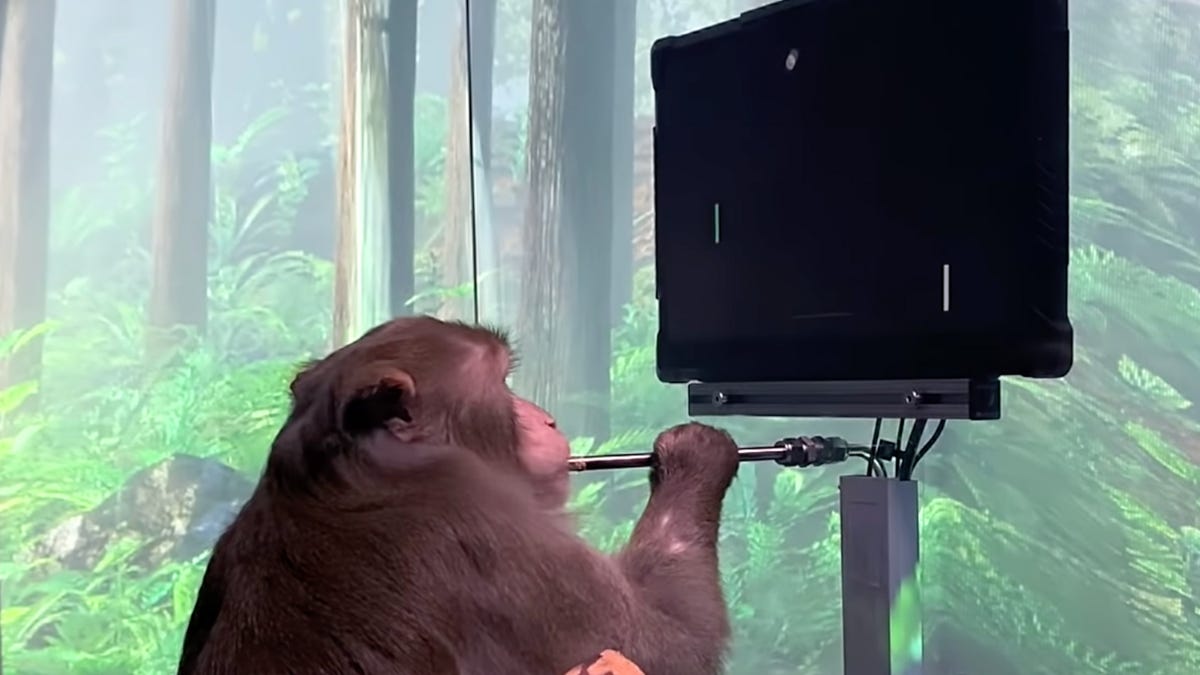Neuralink Reportedly Under Investigation for Potential Animal Welfare Violations
The USDA is looking into allegations of rushed testing that's led to unnecessary deaths at the brain implant startup, according to Reuters.

Pager, Neuralink's 9-year-old macaque, plays "mind Pong" entirely with a brain implant that tracks electrical signals.
Neuralink, the brain implant startup co-founded by Elon Musk, is under federal investigation for potential animal welfare violations and complaints from staff that its rushed animal testing is causing unnecessary suffering and death, Reuters reported Monday.
Musk co-founded Neuralink in 2016 with the goal of creating technology that connects people's brains to computers. The neurotech startup has created implantable chips that aim to help people who are blind to see and people who are paralyzed to walk.
The investigation, opened by the US Department of Agriculture's Inspector General Office, focuses on the Animal Welfare Act, which details how researchers should conduct the treatment and testing of animals, according to Reuters.
Musk's goal of accelerating development has caused unnecessary harm to the animals and careless experiments, resulting in an increased number of test animals being killed. There have been repeated or poorly prepared experiments that have caused animals' unnecessary death, the news agency reported.
Neuralink has killed 1,500 animals in total since 2018, Reuters reported. This isn't a precise estimate due to record-keeping inaccuracies made by Neuralink but apparently accounts for more than 280 sheep, pigs and monkeys.
The vast majority of animals killed are likely to be rats and mice, and basic scientific research across the world uses both these animals as lab models for disease. It's estimated that 800,000 animals are "killed" for research purposes each year in the US, while animal shelters annually kill almost 1 million animals, according to the American Society for the Prevention of Cruelty to Animals.
The Physicians Committee for Responsible Medicine has also criticized Neuralink's testing practices, saying that the company has been "mutilating" monkeys in the pursuit of a brain-machine interface.
In February, Neuralink responded to those criticisms, detailing its "commitment to animal welfare" in a blog post. The post explained the research it has been conducting on pigs and monkeys and revealed details about its future practices.
The blog post also confirmed that six animals were euthanized at the advice of veterinary staff at UC Davis, a collaborator on the company's animal work. The reasons varied. One animal had a surgical complication related to use of a biological adhesive called BioGlue, another had an issue with the brain chip itself, and four animals were euthanized as a result of brain chip-related infections.
During a "show and tell" update on Nov. 30, Musk said the company would be pushing for human trials of its latest brain chip in the next six months. It will need to gain approval for its medical device from the US Food and Drug Administration to perform such trials.
Neuralink didn't respond to a request for comment.



